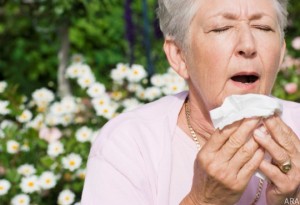Southeast Texas Senior Health News – Spring Allergies? Facts and Myths
Senior Health News – Golden Triangle and East Texas
Spring Allergies – Fact and Fiction
On today’s Southeast Texas Senior Health News we look at facts and myths surrounding SETX spring allergy season
Knowing fact from fiction can make the difference between misery and relief for millions of spring allergy sufferers.
“People often sneeze and wheeze through spring if they use misinformation to manage their condition,” says allergist Dr. Myron Zitt, past president of the American College of Allergy, Asthma and Immunology (ACAAI). “But no one should suffer from spring allergies. Knowing the facts, getting a proper diagnosis and the right treatment allows allergy patients to feel good all season long.”
The ACAAI – whose allergist members specialize in treating allergies and asthma – dispels several common Southeast Texas spring allergy myths.
Myth:
Over-the-counter (OTC, or nonprescription) oral antihistamines are just as effective as prescription medicines in controlling a stuffy nose.
Fact:
OTC antihistamines can help control some allergy symptoms, but they have little effect on relieving a stuffy nose or the inflammation that often occurs with allergies. They also can cause drowsiness. Allergists can prescribe more effective anti-inflammatory medications as well as find the source of suffering, rather than just treat the symptoms.
Myth:
Over the counter decongestant nasal sprays are addictive.
Fact:
OTC decongestant nasal sprays are not technically addictive. However, people who overuse them may think they are because they need more and more to get relief from the congestion. To combat this, OTC decongestant nasal sprays shouldn’t be used more than three days in a row. Also, an allergist can prescribe a nasal spray containing a steroid, which may be more effective and is not addictive.
Myth:
Allergy shots require too much time and are more expensive than taking medicine to relieve symptoms.
Fact:
Depending on how bothersome the allergies are, immunotherapy (allergy shots) may actually save money and improve quality of life. In fact, a recent study showed that immunotherapy reduced total health care costs in children with allergic rhinitis (hay fever) by one-third, and prescription costs by 16 percent. The shots are similar to a vaccine, exposing the recipient to a tiny bit of allergen at a time, to build up a tolerance to it. As tolerance increases, allergy symptoms will be significantly lessened and may even go away. That can save sick days and money spent at the drug store.
Myth:
A blood test is the best way to diagnose allergies.
Fact:
Actually, skin tests are more sensitive than blood tests. In skin allergy testing, the skin on the inside of the arms or the back is pricked with a tiny bit of an allergen. If the person is allergic, the site will become red and swollen within 20 minutes and usually clear in an hour or two. Skin testing is very safe when performed by an allergist, even in infants and young children. But no single test alone provides the entire picture. Sufferers should see an allergist, who is trained in diagnosing and treating allergies.
To learn more about allergies and asthma, Southeast Texas Seniors are encouraged to take a relief test or find a Southeast Texas allergist.
It’s definitely spring allergy season in the Golden Triangle.
We hope today’s edition of the Southeast Texas Senior Health News has been helpful.
-
Daryl Fant, Publisher SETX Seniors / East Texas Senior Resource Guide
-
Call: (512) 567-8068
-
E-mail: SETXAdvertising@gmail.com





















